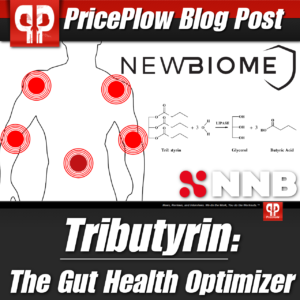
Meet Tributyrin: The Gut Health Optimizer that generates the critical short-chain fatty acid, butyrate
Although the gut microbiome, which includes the trillions of bacteria, viruses, and microbes that reside in the gastrointestinal system, is incredibly complex, it's also integral to the good of overall health. The importance of maintaining proper gut health is a popular area of research in the scientific community. In fact, what many studies are demonstrating is that all of the microbes in the gut can have a profound influence, directly or indirectly, on our physiology and can significantly impact health and disease risk.
Research shows that the gut microbiome primarily contributes to:
- Various metabolic functions
- Protection against pathogens
- Immune system function[1]
Furthermore, a good amount of evidence suggests that the gut microbiome plays some role in cardiovascular disease, irritable bowel syndrome (IBS), inflammatory bowel disease, Crohn's disease, and other health conditions.[1]
Prebiotics vs. Probiotics vs. Postbiotics
Since the gut microbiome is such an important part of human health, much of the research that's been conducted on it has been focused on optimizing and/or improving overall gut health. Several factors can significantly influence the gut microbiome, namely your age, environment, and diet. Various things can enhance gut health, but ensuring that you're consuming a sufficient amount of prebiotics, probiotics, and postbiotics may be the most impactful.
-
Benefits and sources of prebiotics
Core to SO many of our issues is gut health. Eliminating processed food will help tremendously, but what else can we do to restore our gut microbiota?
Prebiotics are a specific type of fiber that can be used to increase the activity and growth of beneficial bacteria in your gut.[2] The health benefits of consuming prebiotics include:
- Increased number of beneficial bacteria
- Increased production of beneficial metabolites (such as postbiotics)
- Enhanced calcium absorption
- Reduced protein fermentation
- Decreased number of pathogenic bacteria
- Lower allergy risk
- Positive effects on gut barrier permeability
- Improved immune system defense[2]
Prebiotics are most commonly found in fruits, vegetables, and some whole grains.
-
Benefits and sources of probiotics
Probiotics are living microorganisms. When consumed, they can boost the diversity of beneficial bacteria in the gut. Probiotics can have various effects on the body, but they may:
- Help you maintain a healthy and diverse gut microbiome
- Assist your body in restoring the diversity and health of the gut microbiome after it's disrupted
- Generate other substances (like postbiotics) that have desirable effects
- Strengthen the immune system[3]
Good sources of probiotics are fermented foods, such as yogurt, sourdough bread, kefir, and sauerkraut. Prebiotics and probiotics are undoubtedly the two most popular dietary supplements for improving or maintaining optimal gut health, but if you're not taking any postbiotics, you may be missing out on some major benefits.
-
Postbiotics: The missing link to optimal gut health?
Postbiotics are often overlooked in the dietary supplement industry, however, more sports nutrition brands and cutting-edge ingredient suppliers, such as NNB Nutrition, are starting to realize their potential.
Butyric Acid vs. Butyrate. With tributyrin, we'll have three butyrate molecules attached to glycerol.
Postbiotics are the byproducts of the fermentation process conducted by probiotics in the intestines.[4] According to researchers from Wageningen University in the Netherlands, postbiotics is a general term for all of the microbial components resulting from fermentation.[4]
This means that postbiotics can include the following constituents:
- Metabolites
- Short-chain fatty acids (SCFAs)
- Microbial cell fractions
- Functional proteins
- Extracellular polysaccharides
- Cell lysates
- Teichoic acid
- Peptidoglycan-derived muropeptides
- Pili-type structures[4]
According to a recent study published in the International Journal of Molecular Sciences, postbiotics may be a missing link when it comes to optimizing gut health.[4] Furthermore, the majority of proposed health effects from supplementing with probiotics or prebiotics depends on the ultimate generation of short-chain fatty acids (SCFAs).[4]
Tributyrin: The ultimate postbiotic supplement
As you can see from the list above, SCFAs are considered postbiotics. So rather than supplementing with more prebiotics and probiotics, you may benefit more from taking an exogenous source of SCFAs. It's possible that one of the most influential SCFAs to supplement with is tributyrin because it's a more efficient, pharmacokinetically-superior variant of butyrate.
Butyrate is an isomer of butyric acid metabolism and is associated with a number of physiological activities, including:
- Regulation of the immune system
- Energy balance
- Metabolism
- Brain function[5]
Although butyrate takes on several roles, it's mainly utilized to supply the cells in your large intestine (colon) with energy to carry out its functions.[5] Thus, supplementing with a quality form of tributyrin makes it possible to increase levels of butyrate in the colon. This will help supply the digestive tract with the fuel it needs to achieve and maintain healthy functioning.[5]
Several gastrointestinal (GI) disorders involve the colon, such as irritable bowel syndrome, Crohn's disease, ulcerative colitis, and colon cancer. So taking an exogenous source of butyrate, such as tributyrin, may reduce the risk of developing these and other health conditions.
At this point, you're probably wondering where can you find a trusted source of tributyrin? Well, NewBiome from NNB Nutrition might be the answer.
NewBiome from NNB Nutrition: A trusted source of tributyrin
Since postbiotic supplements are such a novel category in the sports nutrition industry, there are very few high-quality forms of tributyrin on the market. Fortunately, NNB Nutrition, a leader in ingredient research and development, has just come out with NewBiome.
NewBiome is a top-tier, lab-tested, unadulterated, and patented form of tributyrin that can be taken on its own or added to other comprehensive gut health supplements. NewBiome is available in both powder and oil. It's important to note that the powder form is a combination of tributyrin and tapioca, which is a prebiotic dietary fiber that doesn't result in any glycemic response. Thus, with the powder form of NewBiome, you'll get the benefits of prebiotics and postbiotics.
Not to mention, generic forms of tributyrin tend to smell and taste extremely unpleasant. You don't have to worry about that with NewBiome. NNB Nutrition spent months working on the product's flavor, aroma, solubility, and stability and also to ensure it holds up under heat, oxygen, and light exposure so that it won't turn away consumers. Moreover, NewBiome allows for flexible dosing to obtain the recommended daily dose of 500 to 1000 milligrams. If you've tried prebiotics and probiotics in the past, but are looking to improve your gut health, even more, we highly suggest NewBiome.
Learn more about tributyrin:
Tributyrin: The Gut Health Optimizer
NNB Nutrition: A Leader in Ingredient Development and Research
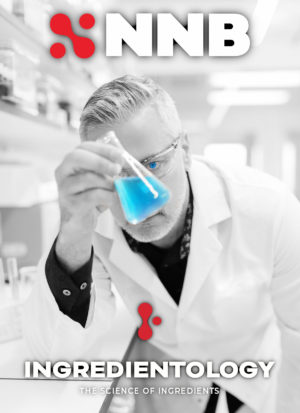
Led by Chief Science Officer Shawn Wells, NNB Nutrition can take an "idea in your head to an ingredient in your hand"
NNB Nutrition's mission is to develop innovative ingredients that can help support longevity, health, and performance. They partner with a variety of manufacturers, supplement, and food/beverage companies all over the world. With decades of experience, passion, and a team that spans the globe, NNB is one of the leading ingredient suppliers/developers out there and the products they've formulated so far have demonstrated that.
Over the years, NNB Nutrition has created numerous cutting-edge ingredients, such as:
- GlucoVantage - the first commercially available form of dihydroberberine (patented)
- CaloriBurn - a 100% Aframomum melegueta (grains of paradise) extract
- MitoBurn - a patent-pending, lab-tested, stabilized form of L-BAIBA (β-aminoisobutyric acid)
- CurcuPrime - a trademarked form of tetrahydrocurcumin (4-HC)
- RhodioPrime - a rhodiola extract that's standardized to contain 6% salidroside
- ZinjaBurn - a trademarked form of dehydrozingerone (DHZ)
- C8Vantage - a revolutionary medium-chain triglyceride (MCT) powder
It's no surprise that several of the top sports nutrition brands, such as Alpha Lion, Kaged Muscle, and Dragon Pharma, are working closely with NNB Nutrition to bring more innovative and effective supplements to consumers. With the popularity of gut health supplements on the rise, we expect New Biome will soon be one of the most talked-about patented ingredients in the category.
For more information about NNB Nutrition, tributyrin, and NewBiome, subscribe below!
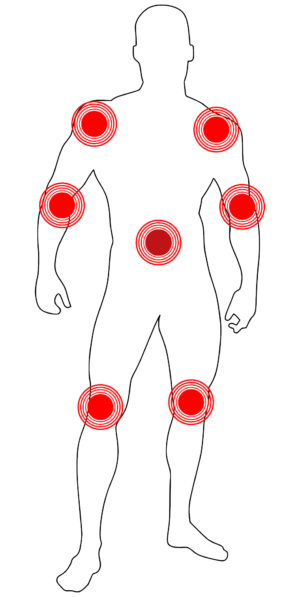
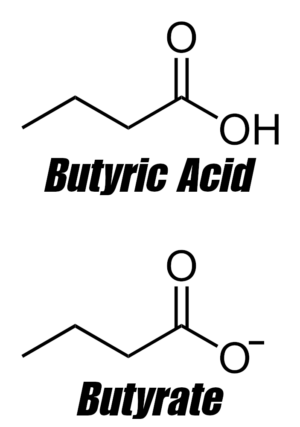
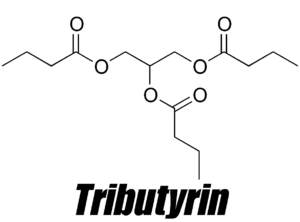
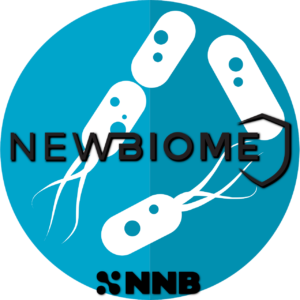


Comments and Discussion (Powered by the PricePlow Forum)